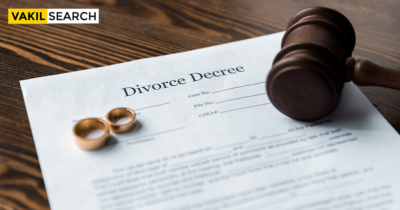Conjoined couples must live together and cohabitate in order to benefit from a Restitution of Conjugal Rights (RCR). To know more, keep reading
Getting married is one of the happiest and most significant moments in anyone’s life. It is a life-changing choice when two individuals choose to spend the rest of their lives together. There are occasions when two individuals committed to living a life together may encounter difficulties. It is said that marriage is a roller coaster ride, with ups and downs, depending on the couple’s ability to deal with both. When this isn’t the case, people turn to legal separation or divorce to find peace and contentment. We’ll talk about what it means to have conjugal rights and how to claim conjugal rights in this blog.
Is recovery of conjugal rights available to anyone? Which country’s laws allow a request to return married couples’ rights? Denial of conjugal rights may be grounds for divorce, but how is this done? To know more about conjugal rights restitution, keep reading.
What Is a Conjugal Rights Restoration?
Marriage brings with it a variety of (sexual) rights and advantages, known as conjugal rights. The rights and benefits of marriage are mostly implicit. This means the right to remain or live together. Restitution of Conjugal Rights refers to the right to live together as a married couple.
Restitution of Conjugal Rights is made up of the terms “Restitution” and “Conjugal Rights,” which are the two essential components.
The term “Conjugal Rights” refers to those rights pertaining to the union of a man and woman in matrimony or the relationship between a husband and wife.
When one spouse has abandoned the other, the other might be liable for restoring conjugal rights. As a result of a court order, a guilty party might be made to live with the aggrieved party.
One party can obtain certain special legal rights against the other via the restitution procedure of conjugal rights. The most important right is the right to live with the guilty person.
Restricting conjugal rights between spouses may be done by a petition filed by either spouse. It is only possible to issue a decree to restore conjugal rights if the marriage is legally lawful.
How Does One Bring a Lawsuit Under Section 9 of the Constitution?
It is possible to petition the family court for a decree of cohabitation if one spouse denies cohabitation. The court has the power to seize property if a judge’s order is ignored. A High Court or the Supreme Court may hear an appeal, though.
Most of the time, if one spouse unilaterally files for divorce, the other seeks for recovery of conjugal rights. The proposal is seen as lawmakers attempting to mediate a truce between bitter couples.
What’s the Reason for the Legislation Being Contested?
The statute is now being challenged because it infringes on the fundamental right to privacy. “Coercive acts” on the side of the state, according to two law students’ petitions, violate one’s sexual and decisional autonomy and right to privacy and dignity. The right to privacy was recognized as a fundamental right by a nine-judge bench of the Supreme Court in 2019.
Despite the Supreme Court’s earlier affirmation of the constitutional right to reclaim one’s conjugal rights, legal experts have noted that its landmark privacy case verdict by a nine-judge Bench has set the stage for potential challenges to several laws, such as the criminalization of homosexuality and rape in marriage and restitution of one’s conjugal rights.
However, even though the legislation is gender-neutral since it permits both spouses to seek restoration of conjugal rights, the clause significantly impacts women. Under the clause, women are often compelled to return to their marital homes, and the fact that marital rape is not a crime leaves them vulnerable.
State interests in safeguarding the institution of marriage will also be debated over whether or not the state can justify a law requiring couples to live together.
Repeal and Repatriation of Inheritance
If one or both of the partners refuses to share a home, withdraw from the social life of the other half, or exercise their rights as husband and wife, then the marriage is at risk.
To ensure gender equality, the court made specific legislative safeguards to ensure that the spouses have their rights. The opposite spouse may sue for recovery of conjugal rights if the couple is not enjoying such privileges.
To bring a lawsuit for restoration of conjugal rights, the party carrying the complaint must show that the other party is at fault, and certain conditions must be met:
The defendant has refused to live with the other spouse or petitioner or has withdrawn from their company. A key consideration is that the other partner does not have to sue for restitution of conjugal rights because they are not living together; as long as they are in contact or communicating and not living together is due to work or another legitimate reason, this will not be viewed as a refusal by society.
The petitioner’s claim must be factual, no false statements have been made, and the substantial half of society must have a reasonable cause for refusing to accept it.
There should be no mention of legal reasons to deny an individual’s request for compensation.
This is how you begin getting your marriage back: When bringing legal action against another individual, the person bringing the suit or case must follow specific protocols to ensure that the action is done correctly.
Conjugal Rights Restitution Procedure
Following is a description of the steps involved in reclaiming conjugal rights:
-
Speak with an Attorney
An excellent family lawyer is the first thing you should do. A thorough grasp of your case’s facts and circumstances will allow a lawyer to advise you. A Petition for Restitution of Conjugal Rights will help you figure out whether you and your partner are still legally married.
-
The Petition Has Been Filed
Restitution of Conjugal Rights Petition may be filed in the District Court or a Court of sufficient jurisdiction after the injured party has chosen to pursue it. Following an in-depth discussion with you, the attorney will begin drafting your petition. Application before the High Court or Supreme Court might be used to transfer a petition.
-
A Copy of the Petition
After a District Court hearing, a copy of the Petition will be provided to the Respondent, i.e. the husband.
-
Attendance in Court
Both parties must appear before the Hon’ble Judge at the next hearing. It’s possible that if both parties are unavailable, a new date will be set for the meeting.
-
Counselling
The court may decide to send both husband and wife to therapy after hearing from the attorneys. Family courts usually carry out the process, and the couple must appear three to four times. Counselling sessions might last anywhere from three to four months.
-
Decree
The Court eventually gives the order based on the processes in court, the counselling, and after hearing both the parties and considering the behavior of the married couple.
Ordering restitution of conjugal rights is entirely up to the Court’s discretion in its ruling.
Final Thoughts
There is a lot of debate over this topic. Many believe this is necessary to keep the union together.
In contrast, others argue that forcing the other spouse to remain with the offended spouse is pointless since they have no interest in doing so. This treatment mustn’t be overused.
Vakilsearch is another option. Property agreements and tax filings are only some of the services they provide to people. They aim to make it easy for people and companies to access their legal and professional requirements with a single click.
Read more:










